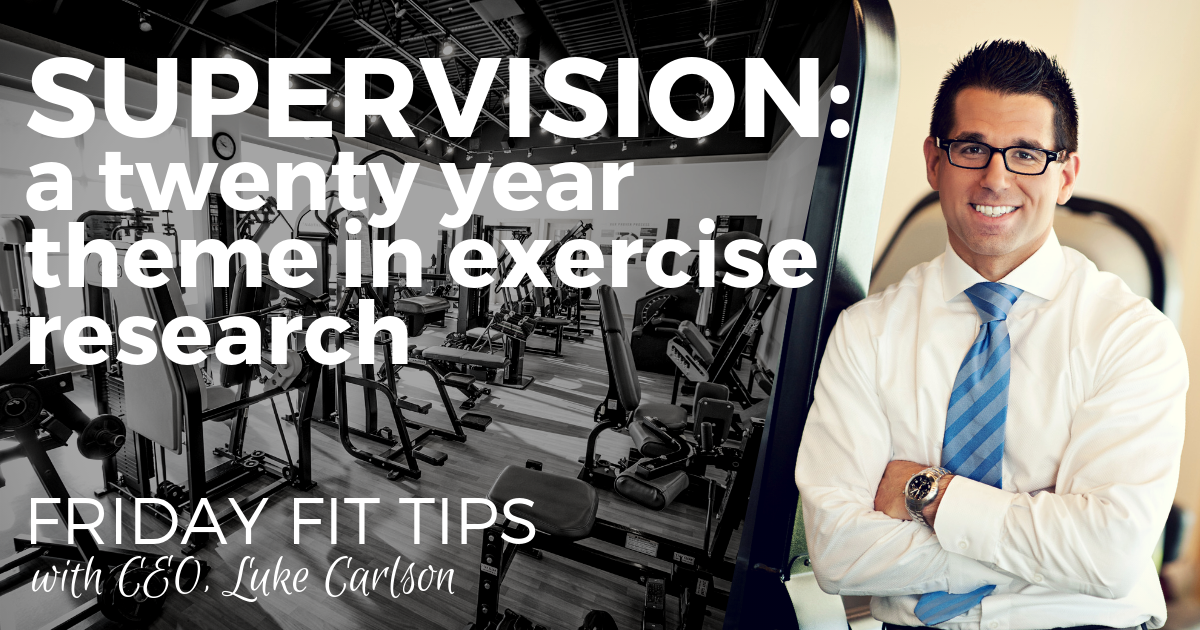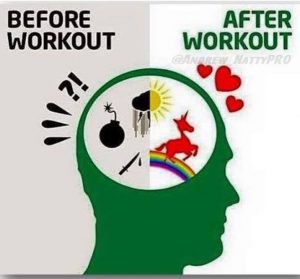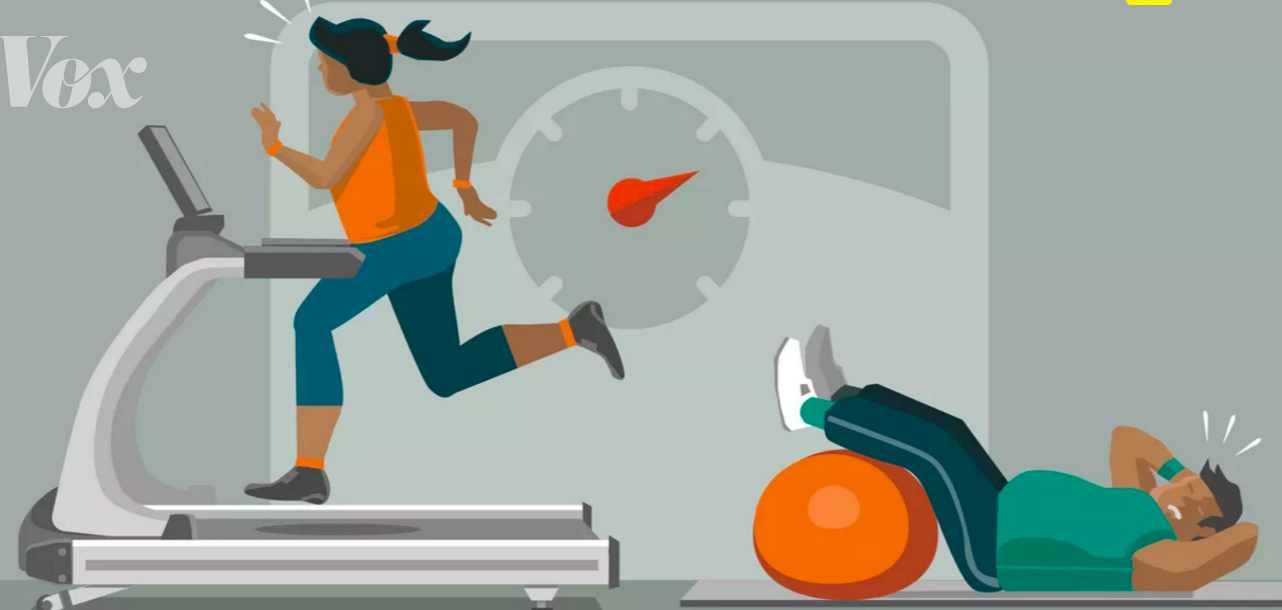09
Nov 2018
By Discover Strength
Posted in
strength training,
benefits from strength training,
health benefits,
cardiovascular health,
aerobics,
heart disease,
men's health
With
NO Comment
Permalink
NEW RESEARCH: ONE HOUR OR TWO STRENGTH TRAINING WORKOUTS PER WEEK LINKED TO DECREASE IN HEART DISEASE
Authors of a new research studying examining the effects of strength training on metabolic syndrome (a clustering of risk factors that pre-dispose to heart disease including high blood pressure, high cholesterol, abdominal fat, and elevated blood sugar) published in Mayo Clinic Proceedings concluded that strength training, independent of aerobic exercise, reduced risk of metabolic disease risk by 29%. Perhaps even more interesting, the research indicated that a relatively small amount of strength training produced the best outcomes.
02
Nov 2018
By Discover Strength
Posted in
strength training,
Arthur Jones,
cardio,
benefits from strength training,
health benefits,
Kenneth Cooper,
cardiovascular health,
aerobics
With
1 Comments
Permalink
THE HEALTH BENEFITS OF STRENGTH TRAINING: An Unintentional Branding Issue
The year 1970 shaped how virtually all of us think about exercise today.
19
Oct 2018
By Discover Strength
Posted in
strength training,
fitness,
supervision,
Exericse Research
With
NO Comment
Permalink
SUPERVISION: A 20 YEAR THEME IN EXERCISE RESEARCH
|
|
|
|
21
Sep 2018
By Discover Strength
Posted in
strength training,
how many reps,
resistance exercise,
resistance training,
strength training set,
how many sets
With
NO Comment
Permalink
INTELLIGENT STRENGTH TRAINING IN THE MEDIA
Over the last two weeks, the New York Times and the Washington Post published two “must-read” articles around intelligent strength training.
31
Aug 2018
By Discover Strength
Posted in
strength training,
aging,
strength training for the aging population,
benefits from strength training,
muscle growth,
seniors
With
NO Comment
Permalink
GROWING MUSCLES AT 60 AND BEYOND
The average adult in the US loses about six pounds of muscle per decade after the age of 30. Which means, on our 60th birthday, we’ve lost 18 pounds of muscle relative to our 30-year-old self. We generally don’t recognize this, and rarely does anyone talk about it, because the muscle loss doesn’t show up on the scale; it is masked by the fat gain that frequently accompanies aging.
20
Dec 2017
By Luke Carlson
Posted in
strength training,
stress relief,
stress,
recover,
Rest,
journal of strength and conditioning,
Exercise recovery,
recovery,
benefits from strength training
With
NO Comment
Permalink
Stress and Recovery
|
For over 11 years, we at Discover Strength have gone against the conventional wisdom that "more is better" when it comes to strength training. For years, we've taught the foundational tenet: You don't get stronger and reap the benefits of strength training WHILE we strength train; instead, we reap the benefits while we are RECOVERING from strength training. Research now supports the notion that two workouts per week can optimize the myriad of benefits from strength training.
However, until recently, very little research existed examining how the various stressors in our lives impact our finite recovery ability.
Authors of a brand new research study published in the Journal of Strength and Conditioning Research provides a breakthrough in our understanding of how chronic mental stress impacts the recovery of our muscles. The researchers concluded that "life event stress" significantly impacted one's ability to recovery from strength training. The authors state, "In all analyses, higher stress was associated with worse recovery." "Stress, whether assessed as life event stress or perceived stress, moderated the recovery trajectories of muscular function and somatic sensations in a 96-hour period after strenuous resistance exercise."
The take-home messages:
|
08
Nov 2017
By Luke Carlson
Posted in
strength training,
cognitive impairment,
cognitive function,
self esteem,
depression,
cognitive ability,
stress relief,
strength training for mental health
With
NO Comment
Permalink
3 Research-Based Mental Health Benefits of Strength Training (and an amazing music video)
When we discuss the many benefits of strength training, we commonly focus on the physiological benefits: Increased muscle strength, enhanced resting metabolic rate, improved bone mineral density and reduced resting blood pressure to name just a few. The aforementioned benefits are augmented by the equally important psychological benefits associated with strength training. The oft heard and almost clichéd expression, "My workout just makes me feel better" actually has significant scientific credibility. An ever-growing body of research points to three mental health benefits of strength training. Researcher Wayne Westcott Ph.D. recently authored an article examining the mental health benefits of strength training. I have included selected quotes below. This is fascinating:
1. Cognitive ability
- "In an excellent review titled, 'Strength Training as a Countermeasure to Aging Muscle and Chronic Disease,' Hurley, Hanson, and Sheoff described four studies that demonstrated an inverse relationship between muscular strength and mental decline/Alzheimer disease."
- "O'Connor, Herring, and Caravalho's comprehensive review of the mental health benefits of strength training identified four studies that attained significant improvements in memory as a result of resistance exercise."
- "A 2012 study by Nagamatsu and associates actually found resistance exercise to be more effective than aerobic activity for improving mental performance in 70 to 80 year old woman with mild cognitive impairment."
2. Self-Esteem
- "Research has revealed enhanced self-esteem resulting from resistance training among younger adults, older adults, women, and cancer patients."
- "Based on their research review, O'Connor and colleagues concluded that 'strength training alone is associated with improvements in overall self-esteem.'"
3. Depression
- "Strength training alone is associated with both large reductions in symptoms of depression among depressed patients with moderate reductions in depression symptoms among patients with fibromyalgia."
- "More than 90% of the initially depressed elders in the resistance exercise group no longer met the criteria for depression after 10 weeks of training, compared to 40% of those in the health education group over the same time period."
11
Oct 2017
By Luke Carlson
Posted in
Body Composition,
strength training,
weight training,
burn calories,
cardio,
fat loss,
eating habits,
counting calories,
healthy,
body fat,
lose weight,
mcdonalds
With
NO Comment
Permalink
The Most Intelligent, Effective, and Socially Unacceptable Approach to Improving Body Composition
Improving body composition, defined as the percentage of our body weight that is comprised of muscle versus fat, is a paramount goal for the clear majority of exercisers. Whether our pursuit is bolstered health and the prevention of chronic disease or improved aesthetic appearance, improving our body composition is a central part of the equation. With so much misinformation, confusion, and wasted effort in our quest of improved body composition, I thought I would share the ultimate success story that illustrates an evidence based, albeit unpopular approach to improving body composition.
11
Sep 2017
By Luke Carlson
Posted in
strength training,
weight training,
supervision,
strength and conditioning coach,
personal trainer,
strength coach,
ken mannie
With
NO Comment
Permalink
Iron Sharpens Iron
Rick and I are in East Lansing Michigan this weekend to attend our first ever Michigan State University football game. We have an infinity for the Spartans because we've been influenced
01
Sep 2017
By Luke Carlson
Posted in
Body Composition,
strength training,
burn calories,
caloric deficit,
calories,
cardio,
exercise,
fitness,
Exericse Research,
fat loss,
cardio for weight loss,
losing weight
With
NO Comment
Permalink
Cardio doesn't do what we think (or hope) it does
It's the prevailing myth that so many fitness enthusiasts still cling to: Cardio will help me lose weight. For nearly 12 years, we at Discover Strength have worked at combatting this misnomer. I don't think we've been very effective. Not a day goes by where I don't hear clients mention that they need to increase their cardio to really start improving their body composition. In full disclosure, I love cardio. In fact, I have a bias toward cardio. I run marathons and I do cardio religiously five days per week. I'm almost rooting for cardio to be effective for weight loss. However, I'm also aware of what the research continually tells us:
Cardio doesn't do what we all think it does.
That is, cardio isn't effective for weight or fat loss. If we survey all the people on a treadmill, elliptical machine, in a spin class, or in a kickboxing class, and we ask them, "What's your objective?" 99% of the answers will be along the lines of, "To lose weight" or, "burn calories." Stated otherwise, we're all using cardio to help us lose weight; but cardio simply doesn't help people lose weight. What is cardio good for? As the name implies, cardio is great for improving cardiovascular fitness and function and potentially mitigating cardiovascular disease risk factors.
Cardio IS valuable, but not for the reasons most of us perform it.












Leave a Reply
Your email address will not be published.